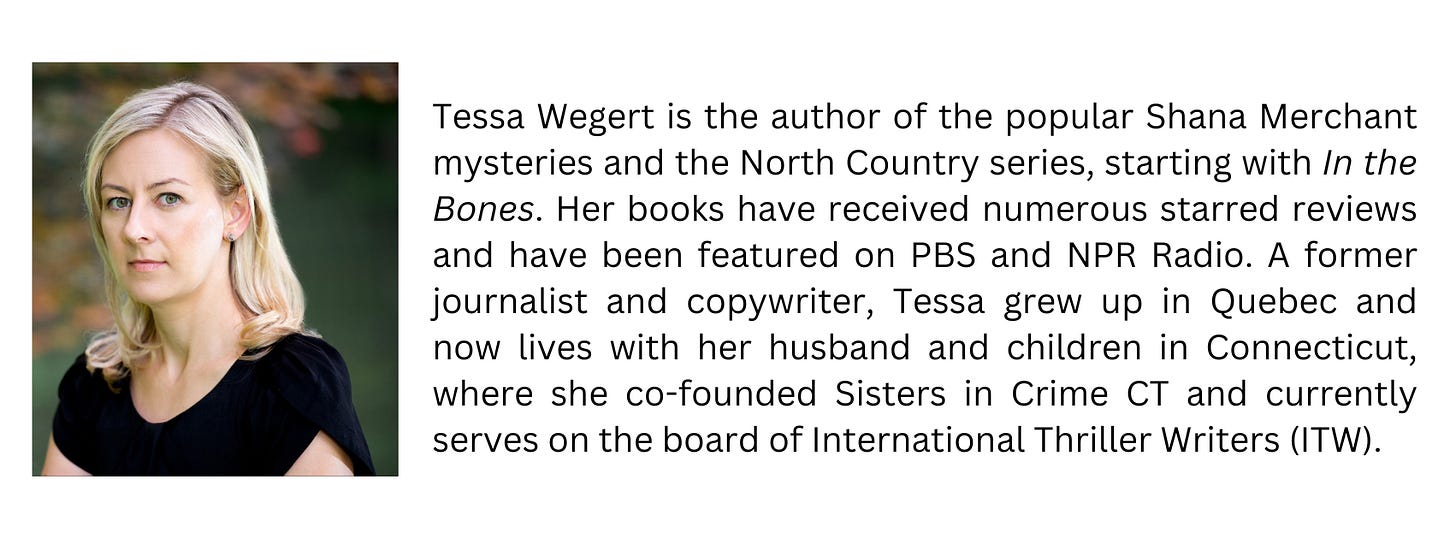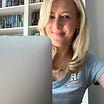Allison Buccola Talks Doomsday Cults, Unconventional Childhoods, and Maternal Instinct (and a Giveaway!)
with Tessa Wegert
Allison Buccola is the author of The Ascent and Catch Her When She Falls. She has a JD from the University of Chicago and lives in the Chicago suburbs with her husband and their two young children.
The Ascent is out now!
The Ascent exists in that sweet spot between mystery and domestic thriller, and you navigate both genres beautifully. Can you give us a brief description of the book?
Thank you! The Ascent is about a woman, Lee Burton, who grew up in a reclusive cult. She woke one morning to discover everyone was gone, including her mother and sister, and the mystery of their disappearance has never been solved. Twenty years later, she’s grappling with new motherhood and trying to build a normal life for herself when a woman appears at her front door threatening to dredge up her past.
Mystery meets domestic suspense is how I think about the genre, too—there’s the underlying puzzle of what happened to Lee’s family and the rest of the cult twenty years ago, and the present-day action is driven by the arrival of this woman: why is she there and does she pose a threat to Lee’s family? It was a lot of fun to weave those two storylines together!
While this story is set in present-day Philadelphia, protagonist Lee Burton’s past ties to a rural doomsday cult play a critical role in shaping her future. What compelled you to explore the impact that isolation and indoctrination can have on cult members, and what did your research process look like?
I’m fascinated by cults (and reclusive communities in general), and I knew I wanted to write about one in this book. So I went through old news coverage of survivalist groups and watched cult documentaries and read through interviews with former cult members. (One of the most helpful resources was Stories from Jonestown by Leigh Fondakowski, a collection of interviews that does a great job letting the survivors speak for themselves.) I kept finding myself drawn to stories about life after leaving the group—how does that experience ripple out? There’s often a real sense of loss, and the transition back into mainstream society is not always easy—especially for children born into the group who are not “reconnecting” with the outside world but connecting with it for the first time.
That focus gave rise to Lee. She’s already left the cult when the story begins (or, rather, the cult left her). But she grew up in Jacob’s Hill, everyone she knew was a part of it, and she’s never felt totally comfortable in the outside world. She’s also never fully processed her loss, and she’s hit with the full brunt of it when she becomes a mother herself.
Throughout the novel, you dip into Lee’s past with glimpses of her unconventional childhood and the unsolved mystery of The Fifteen. Did those scenes exist in your mind from the start, or did they emerge as you fleshed out Lee’s seemingly ideal current life with her baby and husband?
Parts of the cult came first. I knew from the beginning that the group had disappeared, and very early on I had the image of twelve-year-old Lee searching the compound for them, calmly at first and then more frantically as she realizes something is very wrong. There were aspects of the cult embedded in that image—they were communal and survivalist, growing and storing their own food, remote—but some of the specifics about their routines and about the leader himself came after I had fleshed out Lee’s present-day life.
Motherhood features prominently in this book, and your reflections on the push and pull of Lee’s maternal instinct and self-doubt feel so authentic. What drew you to motherhood as a literary theme?
I have two kids who are now well past the baby stage (five and eight), but when I started writing this book new motherhood felt a lot closer. It’s such an overwhelming and transformative stage of life—everything changes in an instant and it’s amazing but also terrifying. And, from the outside, it all looks so mundane. You’re going through the same routines over and over again—rocking the baby, feeding the baby, changing the baby. With fiction, you can bridge that gulf between objective and subjective experience—and over-the-top fictional elements (here, a disappearing cult, but I’m also thinking about the surrealist and speculative elements you find in books like The Need or Dearest or The School for Good Mothers)—help bring out how disorienting that experience can be.
We’re all about the thrills here at Thriller Thursday. What has thrilled you lately?
Lately I’ve been really into books where a house plays a big role in the story—and that’s weirdly true in both my thriller and non-thriller reading. Two of my recent favorites are Nightwatching (I actually couldn’t sleep after reading because my heart was pounding so fast) and We Used To Live Here (MUCH stranger than I was expecting, in a great way), and I also really loved The Safekeep and North Woods.
In terms of non-book thrills—we just got a puppy, and she’s a lot of fun. So most of my non-book time right now is either kid- or puppy-time!
What are you currently reading?
I just started reading The Felons’ Ball by Polly Stewart (out July 15), and I’m loving it—it’s about a Southern crime family with dark secrets (and houseboats).
Question for our readers. Answer in the comments for a chance to WIN a copy of The Ascent!
Which genre is most likely to capture your attention: mystery, or domestic suspense?”








I love both but I’ve been hooked on domestic suspense lately!
I would say I will be captured equally by both mystery and domestic suspense, and if you put them together - that's a no brainer - I am hooked! This amazing interview has piqued my curiosity immensely about THE ASCENT!